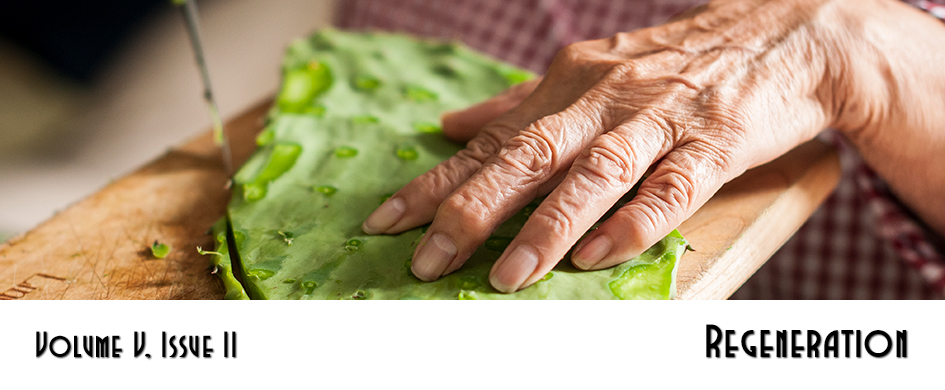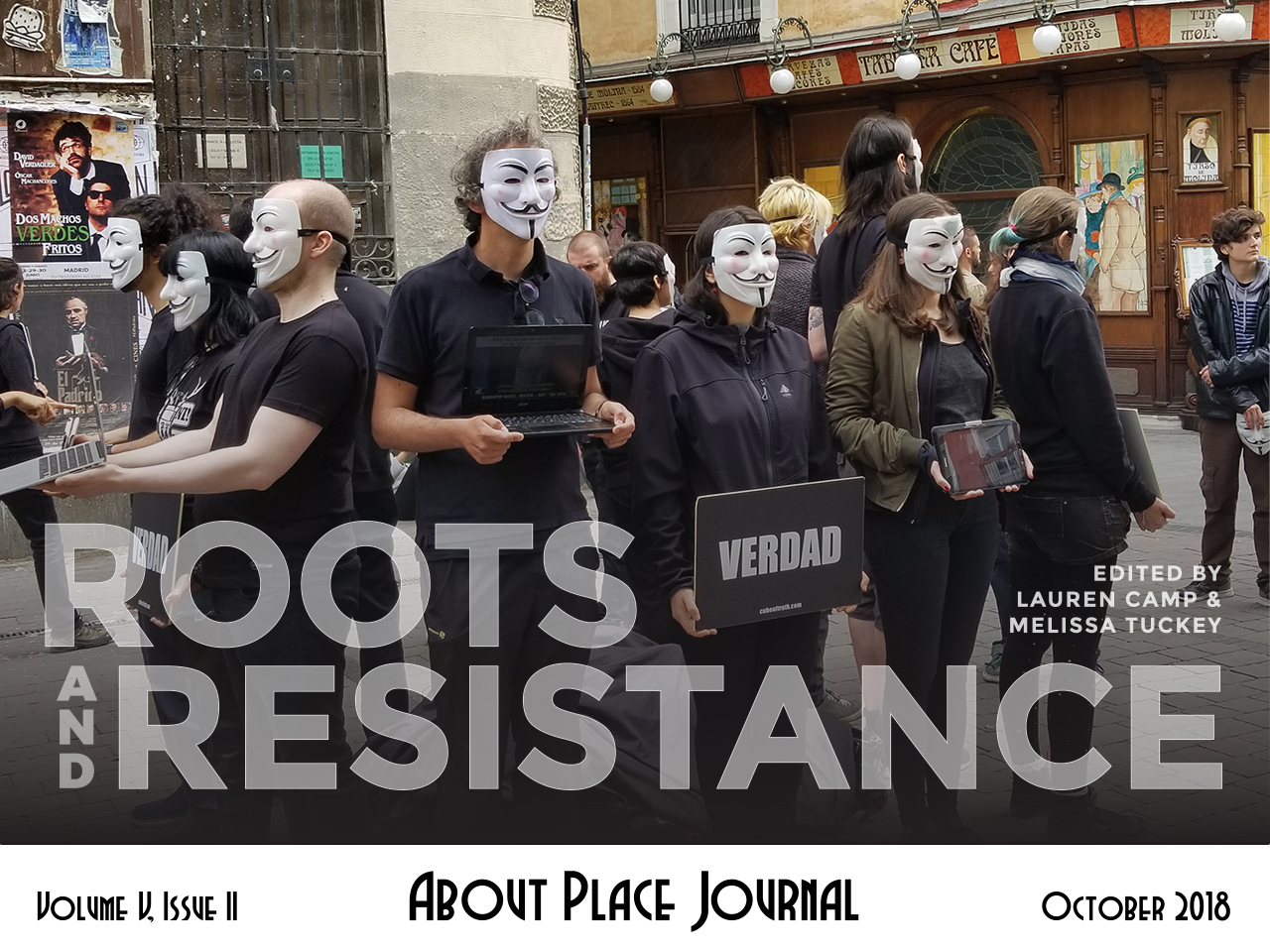My son is going to university this fall. It’s the kind of school he has been looking for, where he can pose important questions, and design his course of study. It is also a small school, where it’s possible to know almost everyone. After three years of traveling and living on and off the land, looking for community, he decided this would be the best way to find it. He’s determined to study there, but it’s the most expensive university in the area. So he found a job to earn his portion of the tuition. He has been doing yard landscaping, and some renovation. He has been digging things up.
One day after clearing an unwanted patch of Solomon’s seal, he brought a bag of roots home. The roots have a variety of medicinal properties. He wanted to try different things with them: slice them, roast them, dry them, make decoctions and tinctures.
All his life he has wanted to bring the outdoors in, to do things that we are not equipped for. Sometimes I could provide him with the tools he needed, more often I couldn’t. That’s where the rub has always been. I know that what he’s doing is important, but I’m weary of the house filled with plants, animals and the wild. When he was a child it was easier to appease him with books on edible and medicinal plants, or wilderness survival. Then he did not want to read about the outdoors, he wanted to be the outdoors.
Right now, there are roots drying on newspapers on the patio, roots on my front porch, and roots in various states of de-rooting in the fridge. Yesterday he sliced some and wanted to dry them. I said: Sure, use our south facing patio. Summer’s perfect for drying things. But he countered: It has to be a dark place, otherwise they lose medicinal properties. I had trouble with the roots coming into the house to begin with, now we had to rethink closet space. I got upset about how much he assumes our house can be turned into a centre for gathering, sorting, storing, and making things. Leather sandal soles treated with linseed oil have been drying on the patio for days.
I keep trying to clear the house of stuff that piles up. I’m aware that my house is a centre of resistance for both of us. A centre for empowering ourselves with what we can accomplish if we set our minds to it. A pushback against the consumer world we live in, where you’re left feeling powerless to do things for yourself, and had better leave it to the experts. But that does not help me deal with the breadth and range of compromise and accommodation I have to make within the small spaces of our home.
My needs are simple. A laptop, a table, and a seat. Preferably a seat close to the ground and close to a window. I use a big pillow to sit on and my breakfast-in-bed table for writing. My husband gave it to me as a gift, even though I was never much of a breakfast person. After twenty years of marriage and parenting, we parted ways. The odds of getting breakfast in bed now are even smaller. We grew roots together for so long, then had to unearth, uproot and move them, to be cultivated somewhere else. There’s no guarantee they will take. We were a good team raising our children, but after the kids were grown, there wasn’t much left between us. We shared some memories, many of which were remembered so differently, they might as well’ve been different memories. We’d changed, or maybe the problem was we hadn’t? We got tired. I’m still wondering how it’s possible to un-love someone after so long.
My older son has always been determined, and consistently so, to do what he’s passionate about. I cannot blame him. Perhaps I gave him too good of an example. But I don’t need much to pursue my passion, and he needs the whole of the outdoors, preferably away from the city. He is a bare-feet-on-the-ground kind of kid. He is can we eat this plant, and can we hunt that squirrel kind of kid. Not a kid anymore. He can build a shelter, and he can make a fire from scratch.
He has always brought things home. I did that, too, but I stuck to shells, and rocks, and twigs. My parents drew the line at an arm-length log I dragged down from a mountain once. They made me leave it on the landing outside the door of our 8th floor apartment. It turned into a conversation piece for anyone who came to their door. My son brings home skins, bark, antlers, bones and teeth.
We’re in the midst of de-mothing his room. He found the culprits in buffalo wool he brought from Ontario, from the other side of the country. Wool so delicious, no moth could resist it. The nature drawer had turned into a moth incubator. Most of his closet is now in plastic bags, and he’s been sunning and freezing things that could be potential moth territory.
In the midst of all this—he brings a huge bag of roots home. Unwanted roots he cleaned out of someone’s yard. They look like hairy ginger roots. At 10pm the sink is full of roots, or it’s time to slice and dry. At 10pm I’m telling my mind and body to slow down.
Time is short. To be a writer or an artist means you have to figure out how to stretch time like pizza dough. I always have to play nice with it, pull gently on the crust. Split the second to get more out it. And I still feel I do not get enough. It is a constant balancing act. I strive to clear out of my way what has to get done, and free time, and space, for what I love to do. My son is doing the same. But every time I feel I’ve put something to rest, like the kitchen, or laundry, or vacuuming, and sit to do my work in my little corner, at my little breakfast-in-bed-turned-computer-table, on an air cushion, which keeps me balancing even when I sit, I find out that there’s something else that’s urgently going on.
I seek quiet and solitude. This is how I resist. I seek spaces of solitude, where I make sense of the world and of myself, where I recognize when I’m being unfair, or unjust, or when I’ve been pushed too far, or have pushed someone too far. “Solitude is a silent storm that breaks down all our dead branches; Yet it sends our living roots deeper into the living heart of the living earth,” says Kahlil Gibran. Solitude is my rebellion against the world of multiple screens and distractions, where not only our time gets fragmented and cannibalized, but so does our attention, our compassion, understanding, and imagination. Nothing is lost once I secure solitude. There, I reach for something less fleeting, something I can hold on to, something I can grow, like a root. There, time expands and I feel a luxury the rushing world cannot offer. Solitude anchors me.
My son does the same. It’s just that he literally brings the roots home, the woven baskets, the arrows, the hides. The other day, it was the thin branches of a tree which he said is perfect material for making arrows. This week he’s using them to teach kids at the outdoor camp where he’s volunteering. He’s full of stories and music. He’s full of fire. This delights me. But also makes me feel inadequate as a parent. On some days I feel like I fail him.
Another way I resist the divisive nature of our world today, the economic and political schizophrenia, is to love harder than I have ever done before. Love not as something that comes naturally, but love practiced consciously, as resistance, to counter the confusion, the anger, and hate that I encounter daily. We can’t bring the whole of the outdoors inside the house. I live in the city. The city places too many constraints on our roots. Covers and strangles them with concrete. Or eradicates them altogether. He doesn’t like the city. I get upset when he pushes too far, and that overshadows the roots that bind us.
We’re both makers. He makes things with his hands, I dig up the roots of words, write poems. He does literally what I tend to metaphorically. Both are political acts of empowerment, and resilience. Both are ways of claiming our freedom and pursuing our passions. We need poems, like bread, but we also need bread in order to be able to write poems.
We share the love for roots and trees. We sit under them, let them nurture and heal us. Our imaginations follow their dendritic thoughts. We resist the simplification of our complex ecologies. “When we have learned how to listen to trees,” Hermann Hesse wrote, “then the brevity and the quickness and the childlike hastiness of our thoughts achieve an incomparable joy.” We listen to these ancient beings. These roots, and branches, and leaves, are the way the earth thinks. We need this conversation. I find joy in such small spaces and interactions. It’s also where my hope lives in an age of digital dementia and addictions.
Both my son and I work on roots in different ways, in a culture that is bent on eradicating them, cutting and binding them, or is simply being oblivious to them. We are only now beginning to discover the many ways trees talk to each other through their roots. But we needed the experts to tell us that to believe it. Roots also talk to us, and in this conversation with what is other than human, we become more human. We connect our own roots to their larger and wiser ways, we become more porous, more fluid, more whole. Our imaginations turn rhizomatic.
After many years of living away from home, I went to visit my parents. I didn’t see my log on the landing, and assumed they’d thrown it out. I was wrong. It was inside, in the living room, displayed in the most prominent place above the TV. This morning, I planted some of those Solomon’s seal roots in a pot on my patio.


